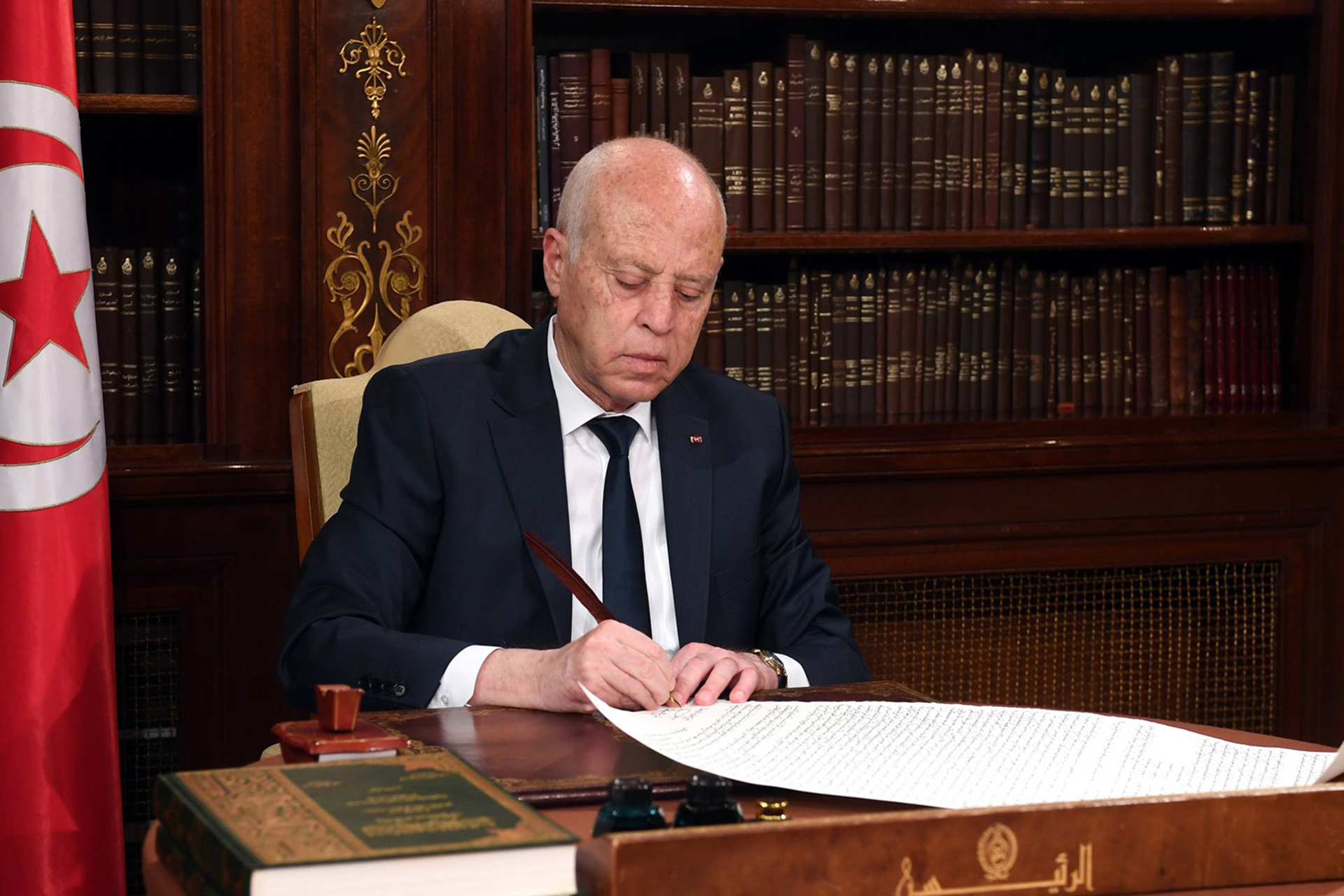Since announcing exceptional measures on July 25, 2021, according to which the government was dissolved and parliament suspended, Tunisian President Kais Saied took several measures and issued a number of exceptional laws that changed the political landscape.
The following are the most prominent of these procedures:
In September 2021, President Said suspended the 2014 constitution, by issuing a presidential decree regulating the powers that enabled him to monopolize all powers, which is Decree 117.
He appointed Naglaa Boden as prime minister, and formed a new government in October 2021. He also proceeded to pursue a number of parliamentarians and politicians, and prevented businessmen, heads of parties, organizations, judges, media professionals, and lawyers from traveling.
In mid-January 2022, President Saied launched the electronic national consultation on the constitution and the political and economic system.
In February, Saeed decided to dissolve the Supreme Judicial Council through a presidential decree, and approved its replacement with an appointed temporary judicial council.
In March 2022, Saeed decided to permanently dissolve Parliament, against the backdrop of holding a parliamentary plenary session chaired by Parliament Speaker Rashid Ghannouchi, which approved the annulment of the exceptional measures put in place by Saeed.
Dissolving the Independent High Authority for Elections in April 2022, amending its law and replacing it with 7 members appointed by the president.
Organizing a constitutional referendum on July 25, 2022, on the draft constitution, to be adopted despite a wide partisan and civil boycott.
On September 15, 2022, Saeed issued a presidential decree amending the electoral law, by imposing the voting system on individuals instead of lists, while reducing the number of seats in Parliament to 161 deputies.

